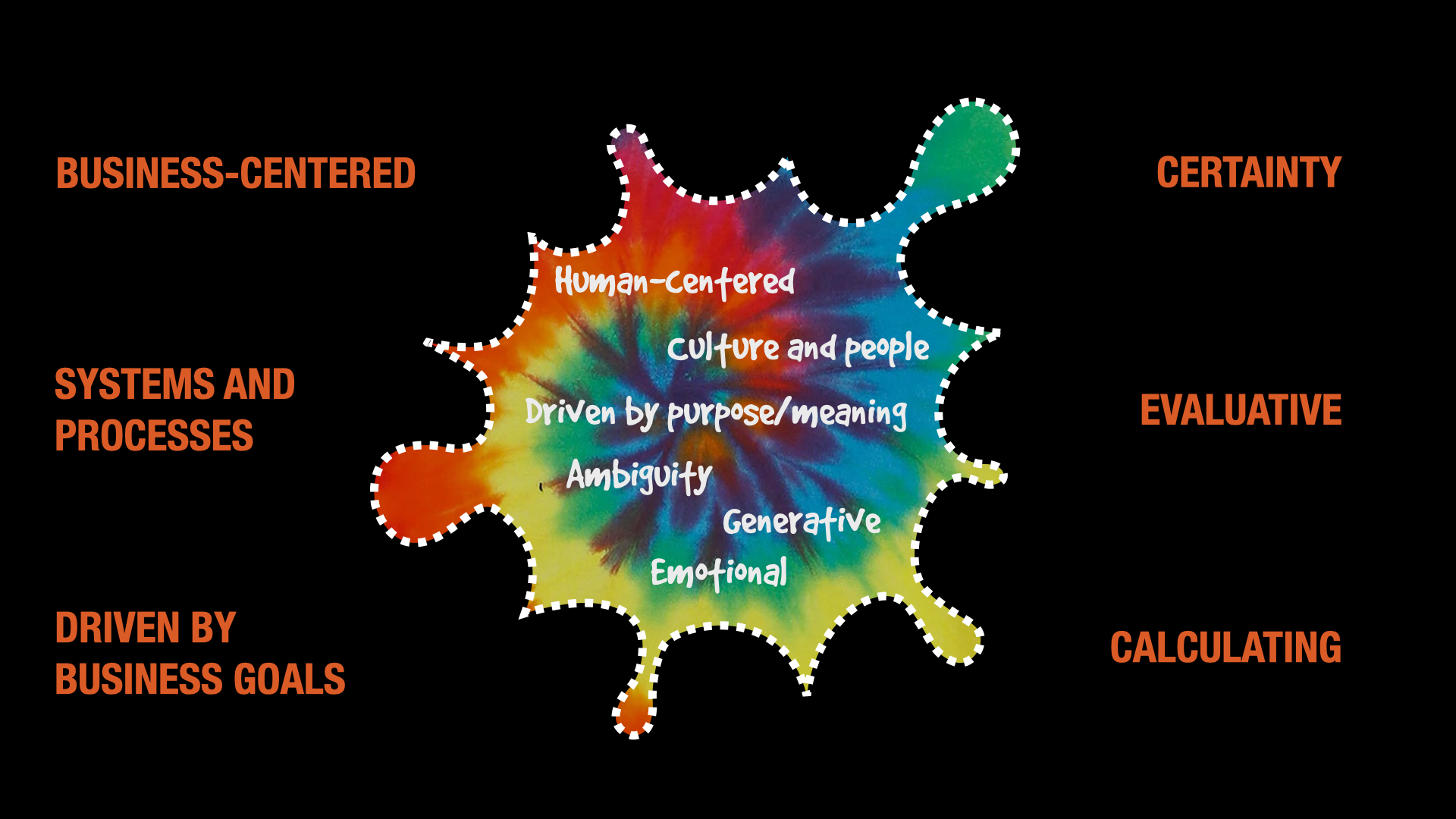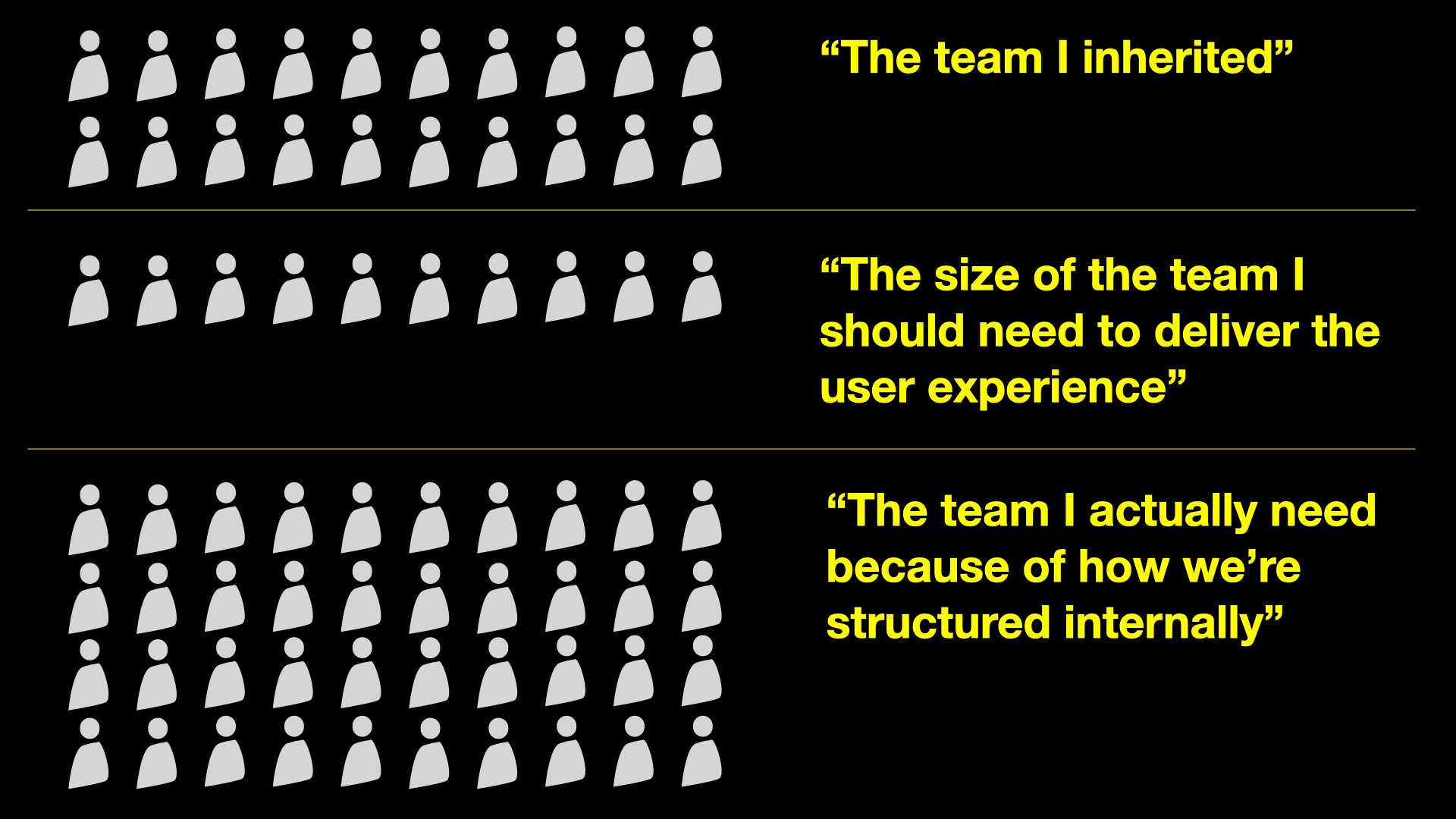Last week, Lenny's Newsletter published findings about the state of tech workers, and in the UX/Design community, the image showing higher rates of burnout among Design and Research folks got a lot of play. To anyone paying attention the last 5 years, this is not surprising. But, given the increased awareness, it's an opportunity to gather all the factors that contribute.
UX/Design is a Constant State of Cognitive Dissonance
Burnout is not just a matter of overwork, of too many hours. When your values and interests are aligned with your work, you can devote yourself way more than 40 hours a week and not feel 'burned out'. Burnout is about energy, and that energy depletes more rapidly when we operate under cognitive dissonance, where what we're told and what we believe, doesn't match what we're experiencing.

As human-centered, empathetic, compassionate, evidence-based, craft-concerned professionals, UX/Design practitioners often operate within environments that conflict with every one of those values. We're told "outcomes over output," and then given timelines to meet an arbitrary ship date, leading to compromised quality. We do our diligence to identify the best solution to realize a specific desired outcome, only to have it be overridden by executives who trust their 'gut,' and aren't interested in evidence that contradicts with their suppositions.
As humanists, we recognize the toll that gamification, surveillance capitalism, and enshittification takes on users, but are told we have to ship deceptive, or at least obscure, interfaces in order to hit our business goals.

For all their talk of 'starting with the customer,' many (most?) businesses are hostile to true human-centricity. In these situations, the amount of hours hardly matters—we're burning out just showing up to work.
UX/Design is Overwhelmed... for Stupid Reasons
What I said nearly a decade ago is even more true today: "You probably don't have enough designers." I regularly hear of work environments with around 5 product managers to every designer. This forces UX/Design folks to make a choice: do I piss off my colleagues by saying "no" to most of what's asked of me in order to do a few things well, or do I say "yes" to what's asked of me, spread myself too thin, and deliver a lot of mediocre work? This is a classic "rock and a hard place" decision, with no good outcome, and will drive anyone to burn out.
The irony being that Design folks realize that the user experience shouldn't need so many designers. But because of the needless complexity of our product organizations, we have to staff not to serve the end user experience, but simply to manage internal relationships.

This evident organizational stupidity gaslights UX/Designers, who feel that there must be a better way, but are being told, "this is just how it's done."
UX/Designers Feel Stuck in Their Development
In my Organization Design practice, a common concern raised by UX/Designers is that they lack the growth opportunities afforded to their peers. Whether due to the management carousel, being a lone designer expected to do everything, or career architectures that insufficiently reflect a UX/Design development path, many UX/Design types find themselves stuck in the same role, doing the same thing, for years on end. Spinning wheels in this fashion leads to burnout, as folks keep seeking ways to grow, only to be thwarted at every attempt.
We're Burned Out Because We Don't Really Belong
At the heart of all of these issues is that UX/Design folks feel burned out, because the environments we work in weren't designed with our interests at heart. The reason "Founder" and "Engineering" suffer burnout the least is because our organizational environments are tailored to suit their values, needs, and desires.
A key motivation for my work in Design Org organization design is to attempt to overcome this situation, to create 'space' within companies where UX/Design practitioners can thrive.
Let's Be Heard
To that end, I'm fielding a survey on the health of UX and Design Organizations. This is an opportunity for our distinct voices to be heard, and I want you to take part! To encourage participation, 5 respondents will be chosen at random to receive either a $100 gift card, or an hour of coaching/consulting with me ($350 value). Filling it out takes about 5-10 minutes, and my hope is it will help us identify where we, as a practice and industry, can collectively support one another.
![[TMA] On Designer and Researcher Burnout; Share Your Experience](/content/images/size/w2400/2025/06/noshit.png)
